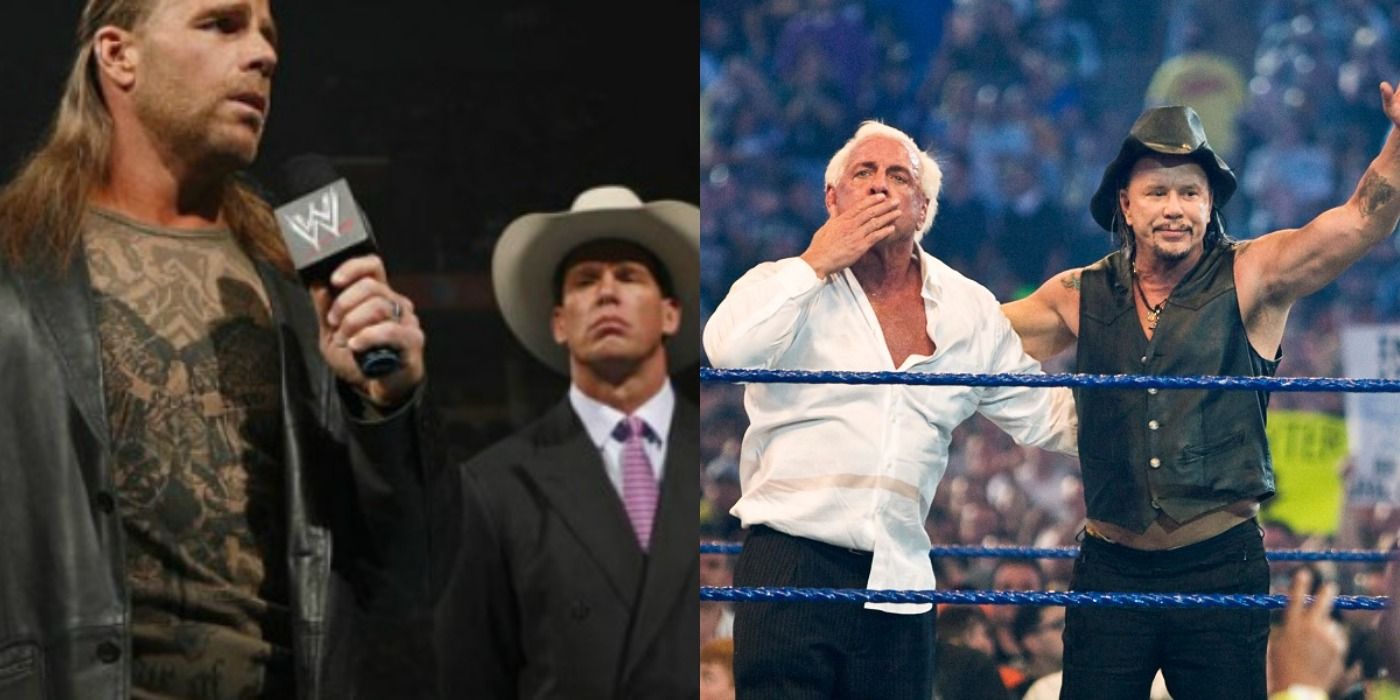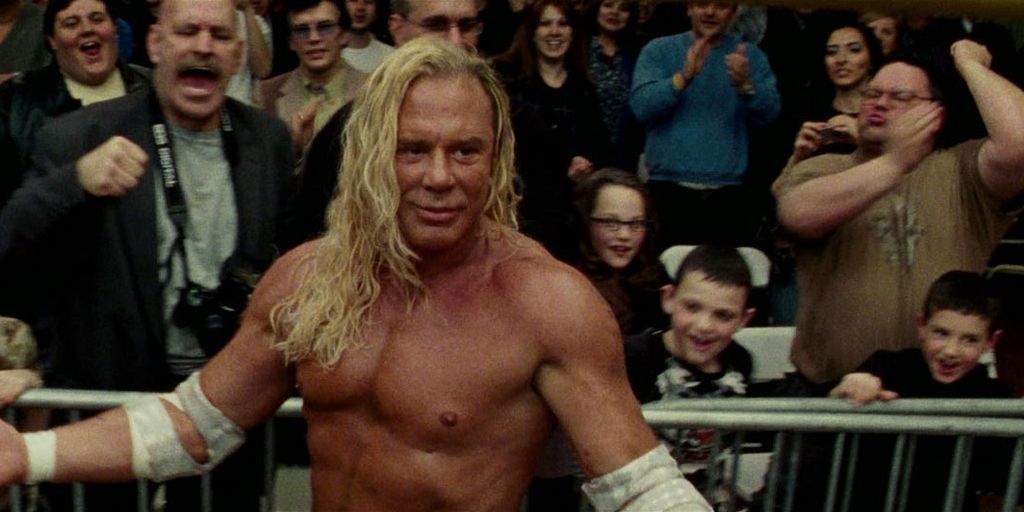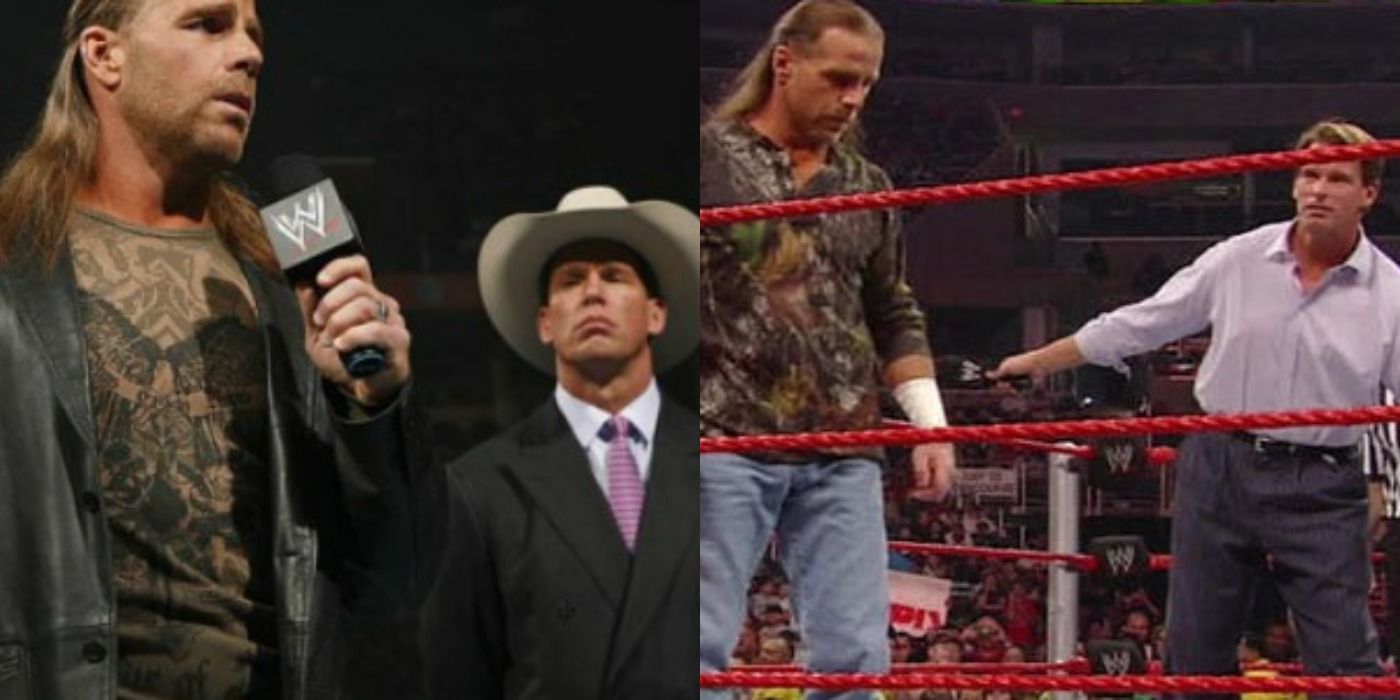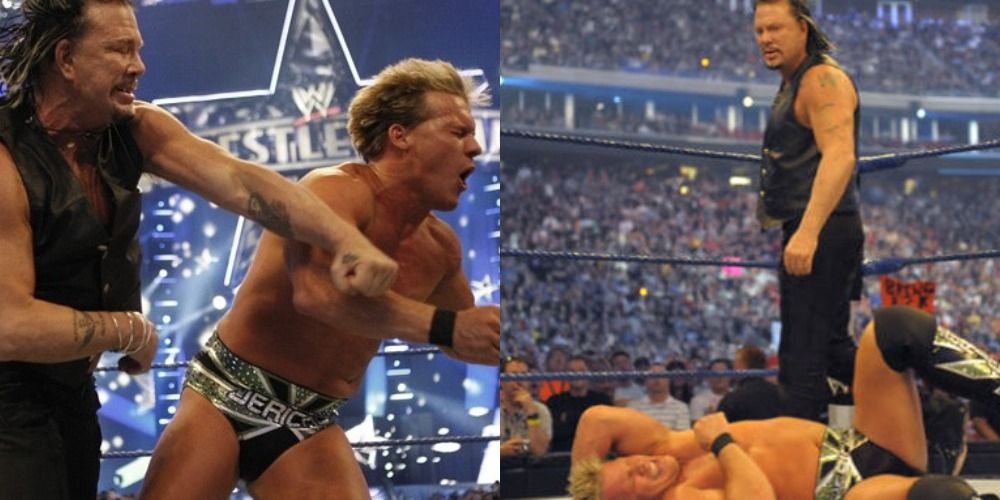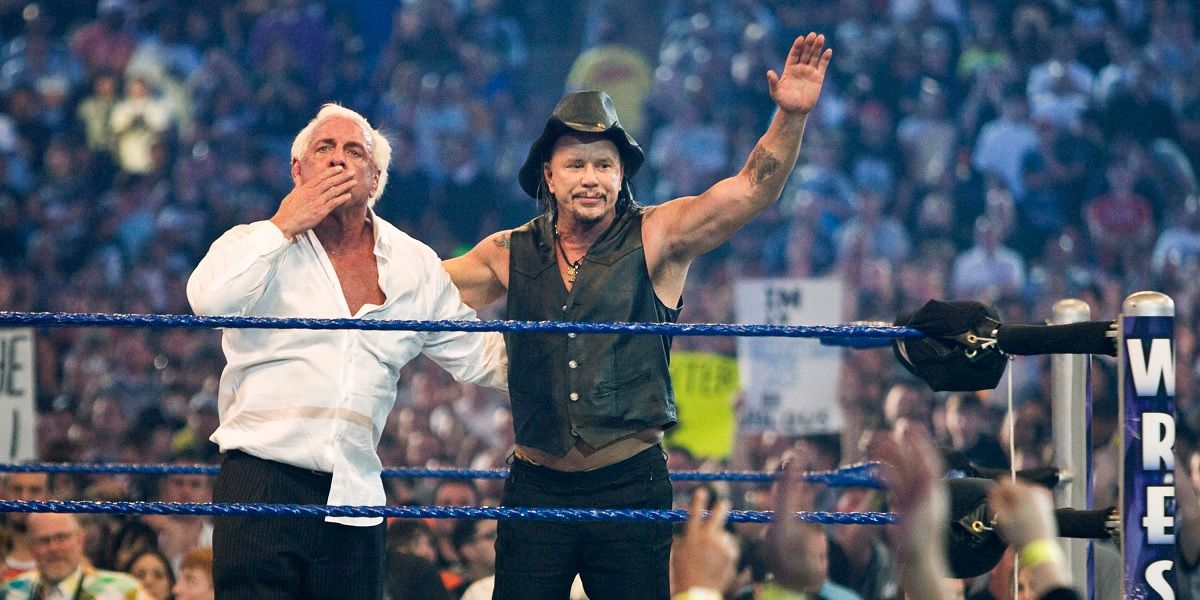The Wrestler is widely regarded as one of the best movies about a professional wrestler ever produced, particularly among non-documentary offerings. It was well-written, well-acted, and well-shot with Darren Aronofsky at the helm and Mickey Rourke turning in arguably the greatest performance of his career. The movie was successful enough to draw attention from WWE, but it’s not clear the powers that be in the largest wrestling company in the world really understood what the project had to say.
The Wrestler Was The Best Received Wrestling Movie Of All Time
Much more than a niche movie that appealed only to wrestling fans, The Wrestler garnered a truly positive reaction from the public. According to IMDb, it grossed over $44,000,000 against an approximate budget of $6,000,000. The project wound up winning Mickey Rourke a Golden Globe for Best Actor (in addition to Oscar nominations for Rourke and Marisa Tomei individually), and the movie itself earned overwhelmingly positive reviews from critics and a general audience.
With this kind of positive response, it’s little wonder that WWE—the largest wrestling company in the world—would want to tap into the movie’s success. It did so in a few ways, including a major angle with a similar storyline, and eventually booking Mickey Rourke for a major celebrity appearance.
The Shawn Michaels Angle
Shawn Michaels was cemented as a WWE legend by the time The Wrestler achieved a national release in January 2009. He had a well-publicized real life story of struggling with attitude and substance abuse issues, before cleaning up his act and making one of the most successful comebacks in wrestling history in 2002. Over the years to follow, he not only added an extra chapter, but a veritable second half to his career.
WWE rolled the dice in booking HBK into an angle that felt directly inspired by The Wrestler. He was portrayed to have fallen on hard times after living beyond his means for too much of his career. In turn, WWE booked him into JBL’s servitude, as his heel character was based all but entirely on him being wealthy. Michaels helped JBL for a short time, before progressing to the predictable angle of The Showstopper breaking off to fight back against his oppressor. Michaels vs. JBL was a reasonable enough program, if lacking in a lot of the nuance that made The Wrestler great. WWE seemed to rush through it, perhaps recognizing that fans were more interested in seeing HBK unencumbered by an angle about financial strife.
Booking Mickey Rourke For WrestleMania 25
Another reason why WWE may have moved on from Shawn Michaels vs. JBL quickly was that they made contact with Mickey Rourke heading into WrestleMania 25. It stand to reason they wouldn't want to run a separate angle inspired by The Wrestler concurrent with the movie’s star appearing at the same PPV. Rumors indicated WWE meant for Rourke to work a match with Chris Jericho in Houston, before Rourke’s people got cold feet about him actually wrestling, particularly when his acting performance was getting major awards buzz.
Rourke nonetheless did appear at WrestleMania 25 to offer moral support to Roddy Piper, Ricky Steamboat, and Jimmy Snuka who, in spirit represented similar legends to Rourke’s Randy The Ram character. The actor got in the ring post-match to deliver a flurry of punches to Jericho for a feel good moment.
The Message Of The Wrestler
It makes complete sense for WWE to want some association with The Wrestler given its box office success and critical acclaim. However, in deriving from the movie’s story and booking Rourke to be a part of WrestleMania, WWE seemed to miss a central point—the movie did not tell an inspirational tale, and if anything condemned the practices of the wrestling business.
In The Wrestler, Mickey Rourke’s character clings to a past when he was wildly popular, working wrestling matches on the weekend in equal parts to revisit the old adrenaline rush of a crowd cheering him on and to make ends meet financially. Randy The Ram is less an idol to aspire to, though, than a cautionary tale. He depends on illegal substance use, and keeps wrestling even after, by all indications, it’s not medically safe for him to do so. There's every implication he might die in the process of his last match at the end of the film. The film’s messaging doesn’t necessarily bash wrestling itself, but does point out that even the legends of the business can face unhappy lives, short on money, in miserable health, and chasing highs they’ll never attain again in any healthy way.
The Wrestler is a movie worth seeing for any wrestling fan, for its authenticity, compelling story, and stellar acting and production. However, it’s hardly a work of art that embodies what WWE would want fans to know about the business. Maybe any press is good press for wrestling, like so many businesses, but WWE probably should have been a little more careful about how it attached itself to The Wrestler.

